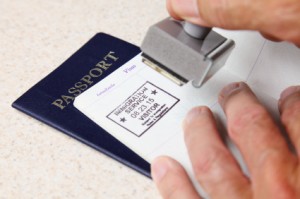Sponsoring a Teacher Visa in Japan Part 1
This year the language school I help out at is sponsoring a teacher for a visa for the first time. So far we have always managed to hire people who already had a visa, but we found a great teacher who’s a JET until August and would like to work for us after that.
Unsure of the process, I reached out to school owners on the ETJ Owners List (the best resource for advice on running a language school in Japan).
Many people replied. This seems to be a popular topic, or one that people feel strongly about. The main takeaway was that there does not seem to be a standard application or guidelines: the process appears to be at the discretion of the immigration officer that deals with your case. I received the following advice:
- Hire an immigration lawyer, or
- Have a Japanese native speaker call to inquire (otherwise you may be accused of misunderstanding the officer’s Japanese and sent home to get more documents)
- Don’t ask questions or argue; just do whatever they say
- Call back another day to try to speak to another person if you run into a difficult officer
- Go to another immigration office if necessary(!)
Pretty grim stuff, but more or less what I was expecting. The lack of consensus on required documents, etc. was a bit worrying. I also had a look at some immigration lawyer websites (easy to find in English through a quick web search) and found that the following would probably be necessary:
- Company documents, including tax statements (this might be a problem as the school is not a company but held by private individual)
- Documents relating to the position (salary, duties)
- University diploma
We then contacted our local immigration office to start the process (a Japanese staff member made the call).
We were told that the school would have to prepare various documents, and the applicant would also have to prepare various documents. The applicant would then bring everything to the immigration office and make the application.
School documents:
- Copy of school financial information
- Proof of school activities (like a pamphlet)
- Teacher contract
Teacher documents:
- Photograph
- University diploma
- Resume/CV
- Passport
- Residence card
We also found some information on the Ministry of Justice’s website, including the application forms (the one to change to Specialist in Humanities is number 8), and the requirements.
The next step is to put the documents together and brave the dragon’s den along with our new teacher. I’ll write it up in Part 2 later this month. Is it just me, or does this all seem too easy?
If people understand what “Sponsoring a visa” implies here then I guess it’s fine, but I think really the school is just helping the teacher get a visa. When I got my last visa I did most of the work myself. I worked at several schools at the time and they were all very helpful giving me the documents I needed. Actually my visa is just about up so now I need to look into the process of obtaining permanent residency.
I’m following this post with curiosity, as we want to do the same in the near future!

I’d say the process here is pretty easy compared to some countries. When people talk about this topic I wonder if “sponsoring a visa” is a misleading term. The school isn’t really sponsoring the person’s visa as far as I am aware. They don’t put the school’s name on the visa and person could quit the school at anytime and still hold a valid visa. I’ve had sponsored visas in America and Ireland and that meant that if I quit the company my visa would become invalid.